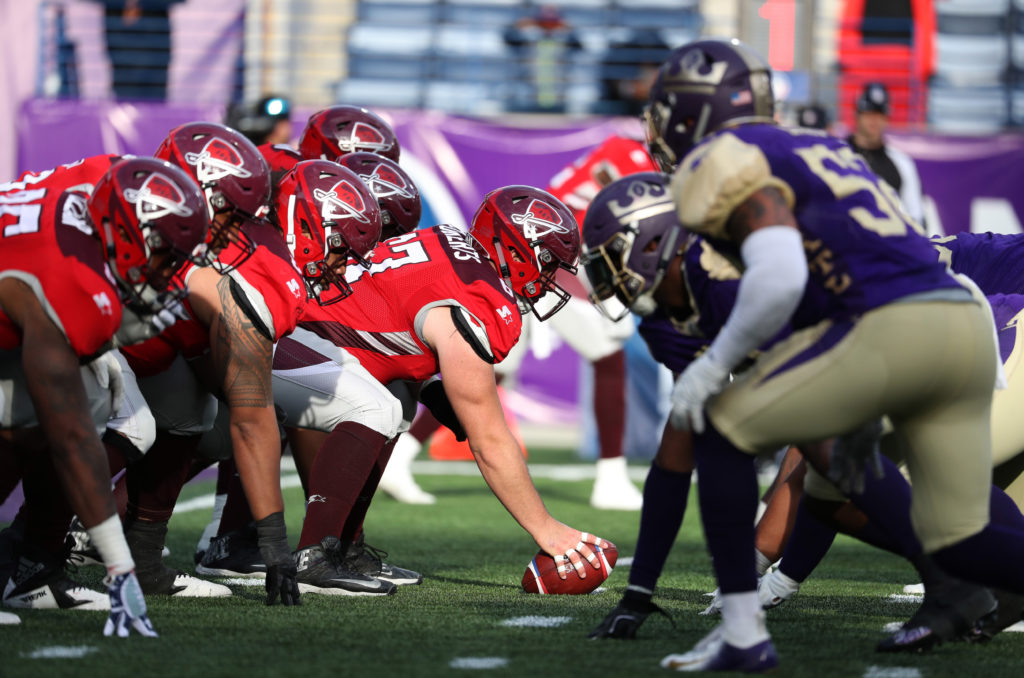Ad Disclosure
The Alliance of American Football Might be Dead

It was fun while it lasted:
Sources: The AAF will suspend all football operations today. New owner Tom Dundon will lose approximately $70 million on his investment. Dundon makes decision against wishes of league co-founders Charlie Ebersol and Bill Polian.
— Darren Rovell (@darrenrovell) April 2, 2019
All @TheAAF football operations will be suspended in the next few hours, per source with knowledge of situation. League is not folding, yet. But it's heading that way.
— ProFootballTalk (@ProFootballTalk) April 2, 2019
I watched bits and pieces of three AAF games. It honestly was not that bad of a product.
But, if you recall, the league was struggling right out of the gates. There was a point, just two weeks in, where they didn’t even think they’d be able to pay their players.
So in stepped Carolina Hurricanes owner Tom Dundon, who put $250 million into the AAF to help the league meet its financial obligations. He became the de facto commissioner/CEO/God-king at the same time.
Early reports seem to suggest that this is not a financial issue. As Rovell mentioned, the league founders, Ebersol and Polian, are in disagreement with Dundon.
Check this out:
Perception inside the AAF is that Hurricanes owner Tom Dundon bought a majority stake in the league simply for the gambling app being developed.
Source: "Dundon got the technology he wanted and he's now minus one rather large headache."
— Albert Breer (@AlbertBreer) April 2, 2019
Damn. This is some shrewd shit, if true. Some cutthroat stuff.
Dundon, then, could have bought the league, taken the technology, and said “to hell” with the football being played on the field.
Rovell, who was working for ESPN at the time, wrote a story about this in September of 2018, before the AAF launched:
The Alliance of American Football’s in-house tech team has built a gambling product that not only will allow the gambler to watch a game on an app while betting on it on the same screen, it will also allow the league’s exclusive gaming partner to better price the in-game odds by building a data set that correlates the likelihood of a certain bet winning.
When Charlie Ebersol co-founded the AAF, he had in mind the idea of building a separate tech business alongside the league. While Ebersol effusively talked about gambling, he did not reveal that his team was building a robust product that would immediately bolster interest in the league. That revelation, which comes this week, makes it more clear why certain investors wanted in, including the Chernin Group, which owns the sports betting site and app The Action Network; tech investor Keith Rabois; and Brian Singerman from the Founders Fund.
Another investor on the gambling side is MGM, which will be the exclusive in-game gambling partner of the league for the next three seasons. MGM will host the gambling business on its app because it is the licensee.
Rovell went on to explain that MGM was putting wearable technology on players, which allowed them to collect second-generation statistics that would be used for in-game gambling. He notes that unions like the NFLPA are opposed to this idea while noting that the AAF did not have a players union.
The other side of this is that Dundon has been trying to swing an agreement with the NFL and NFLPA regarding practice squad players and some sort of link between the leagues.. That would benefit the AAF financially, to be an NFL partner and a developmental league of sorts. I don’t really know how much leverage Dundon has here, if any, or what his real endgame is. It could be the gambling thing. It could be this. It could be both. I don’t know.
The AAF features (featured?) eight teams across the country and includes a number of former Eagles, like Greg Ward Jr., Dexter McDougle, DeVante Bausby, Ed Reynolds, and Josh Huff.
More to come here.
Kevin has been writing about Philadelphia sports since 2009. He spent seven years in the CBS 3 sports department and started with the Union during the team's 2010 inaugural season. He went to the academic powerhouses of Boyertown High School and West Virginia University. email - k.kinkead@sportradar.com